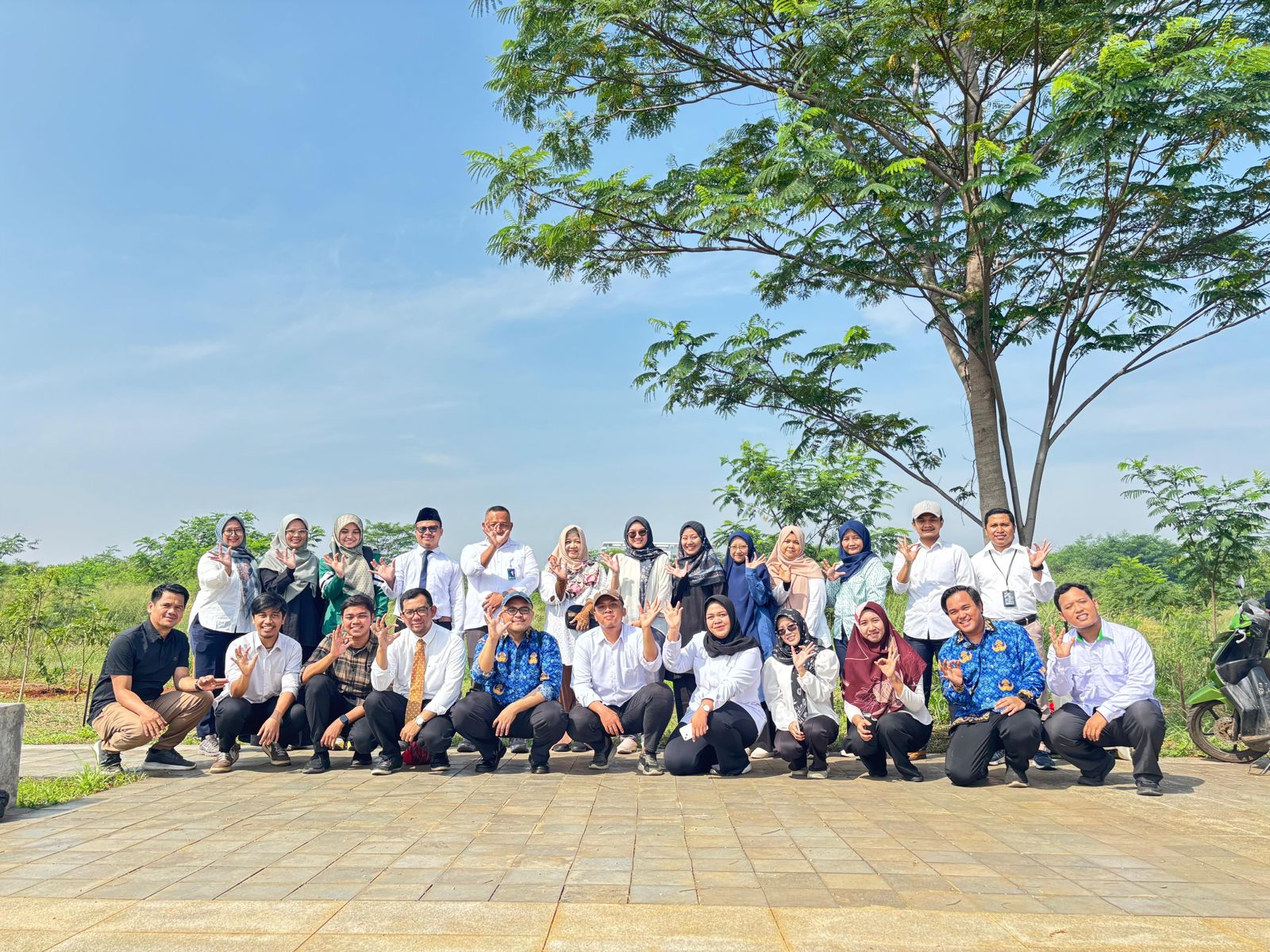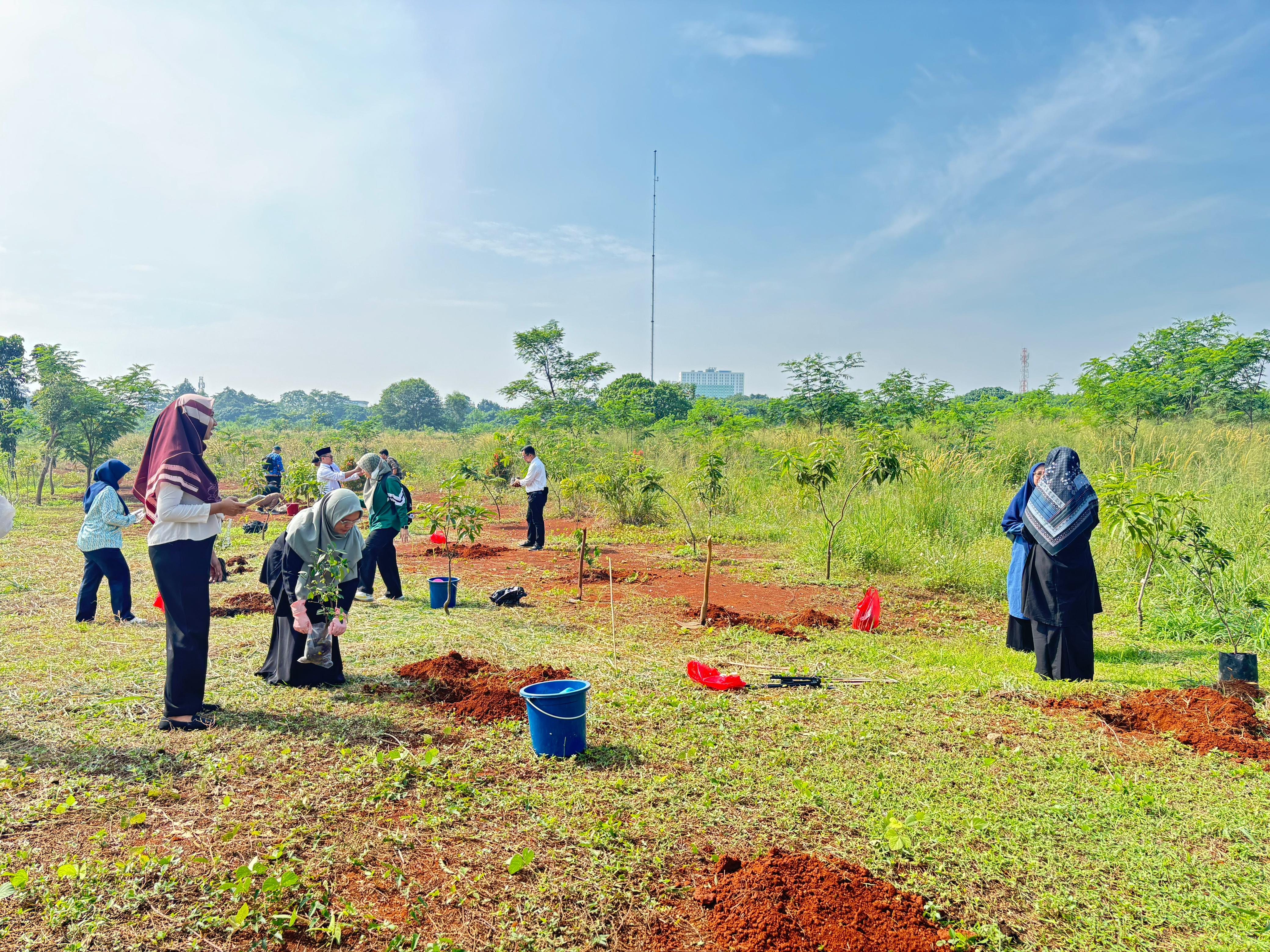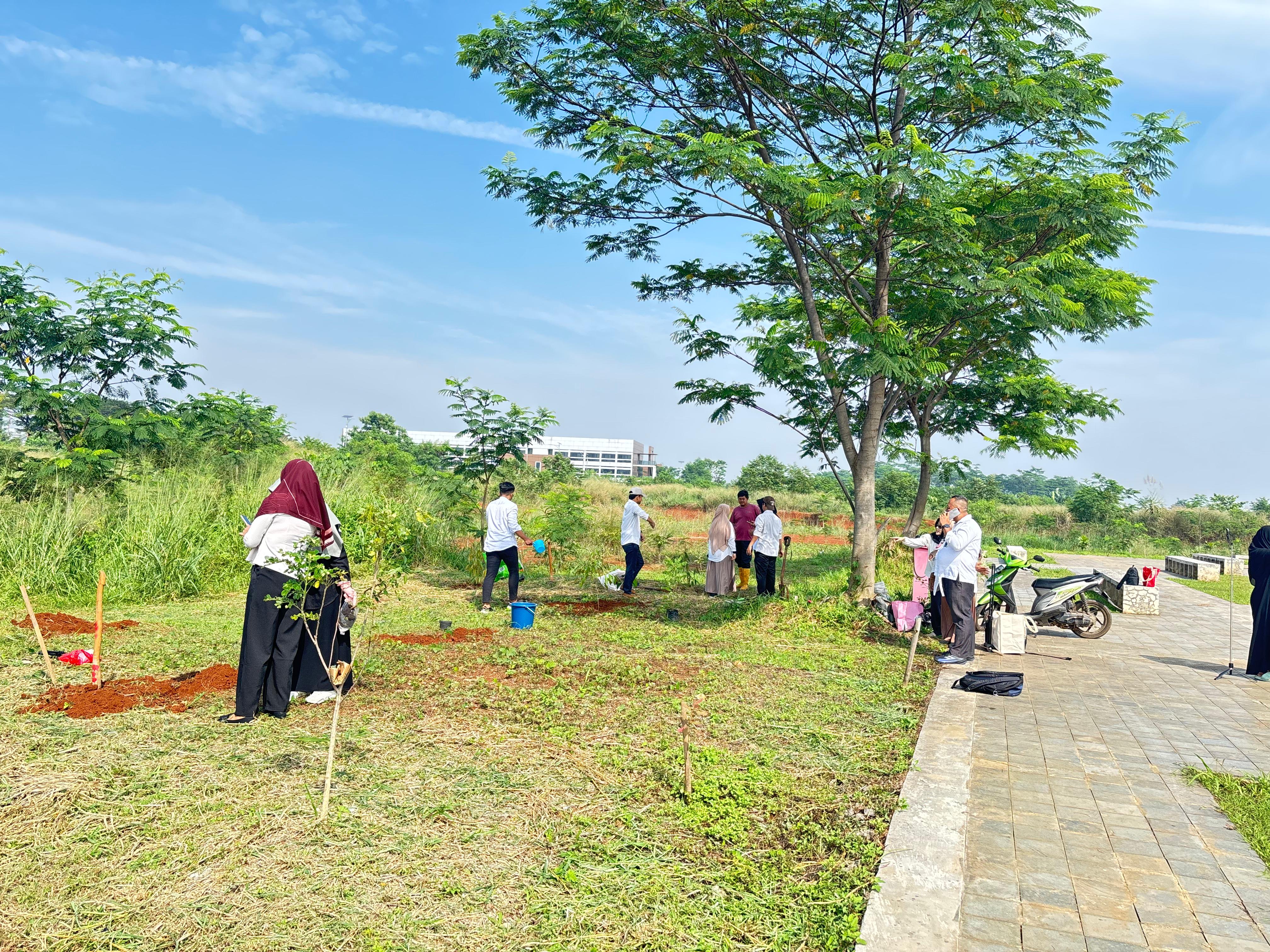June 3, 2025
Contributor: Supriyono & Oksalanio Jumabel | Editor: Dadi Darmadi | Photo: Adila Khoirunnisa

Depok, June 2, 2025 – In support of the Ministry of Religious Affairs’ eco-theology vision, dozens of newly appointed Civil Servant Candidates (CPNS) at Universitas Islam Internasional Indonesia (UIII) took the lead in promoting green action through a tree planting initiative at UIII’s Eco Park.
The movement is part of the Ministry of Religious Affairs’ flagship Asta Protas Program, mandated through the Secretary General’s circular (No. P-1180/SJ/B.II/KP.00.1/05/2025) and launched nationwide to strengthen the intersection of faith and environmental responsibility.
Out of the 22 CPNS newly assigned to UIII, 17 took the initiative to plant tree seedlings around the university campus, transforming the government mandate into a hands-on environmental action. The remaining five CPNS extended this spirit beyond the university, planting trees at their respective places of worship, demonstrating that eco-theological values transcend workplace boundaries and resonate personally.

“This is beyond just tree planting,” said Hatta Auliya, S.E., Head of UIII’s Organization, Human Resource and Legal Bureau (OKH). “It’s a powerful declaration that civil servants are not just administrators, but also stewards of creation, carrying the responsibility to protect and nurture the environment wherever we are.”
The Asta Protas Program is designed to cultivate a harmonious relationship with the environment, promoting interfaith tolerance and a collective sense of responsibility to ensure a just and prosperous society. UIII’s enthusiastic response serves as a model for other institutions, proving that eco-theology can move from policy to meaningful practice.

This UIII initiative reflects a broader societal shift in Indonesia, where faith-based organizations and educational institutions are increasingly stepping up to confront environmental challenges. As the Ministry’s Asta Protas Program gains momentum, it’s clear that the new generation of civil servants is not just preparing to manage government operations: they’re planting the seeds of a greener, more sustainable future.
Universitas Islam Internasional Indonesia